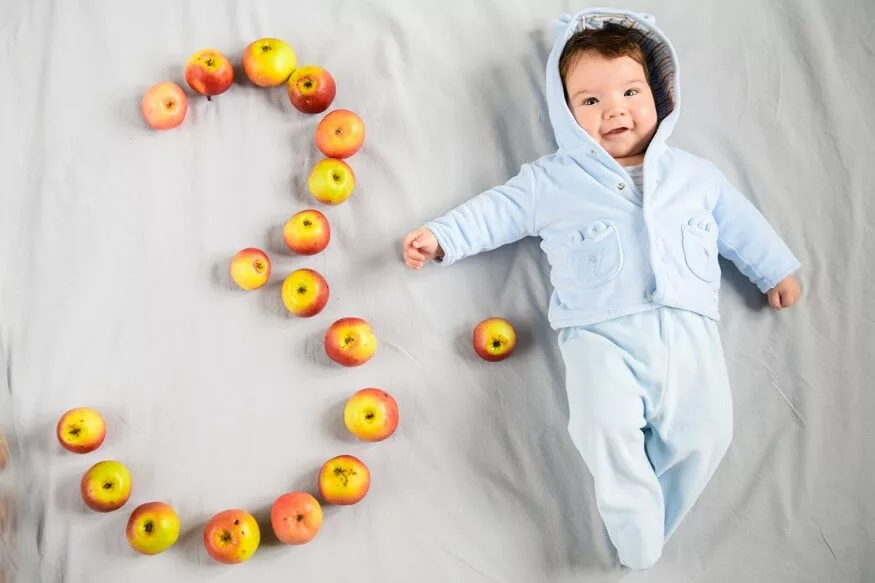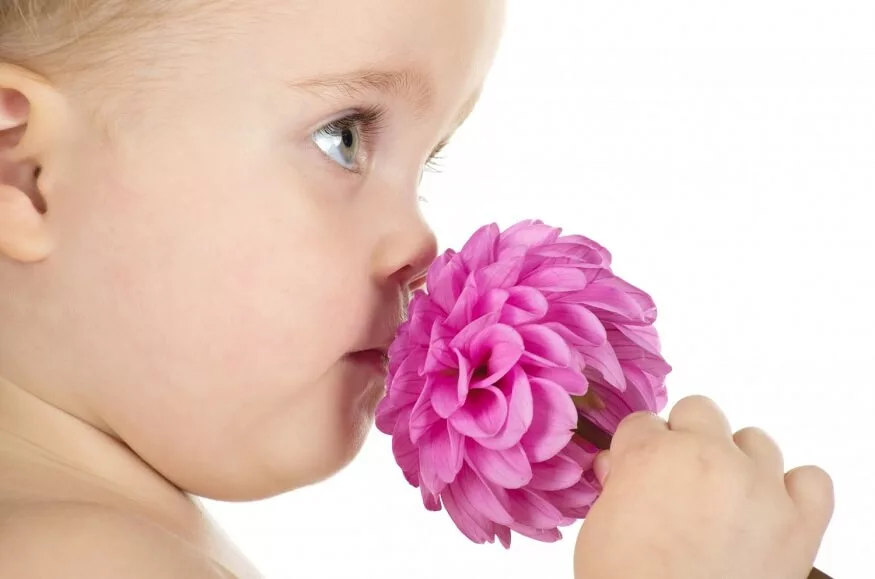All parents have concerns at some time about their child’s development starting from infant development by month. But if you notice your child is struggling to meet certain childhood milestones, you may suspect the baby is experiencing a developmental delay. It’s important to listen to these concerns and reach out to a healthcare provider early.
For you to learn more from the baby’s healthcare practitioner, some newborn development by week and infant development by month theory below will give you some preparation ideas.
Also Read: Top Developmental Milestones That Every Child Should Reach
Newborn development by week:
During the first few weeks of life, newborn development is rapid. The initial process for parents to understand newborn development by week is:
- In the initial week, they primarily sleep and feed.
- By the second week, they may start to focus on objects and faces.
- By the third week, they may briefly lift their head, and some reflexes become more controlled.
Also Read : How to Guide Cognitive Development in Kids for Effective Learning?
Infant development by month:
- 0-1 month: developing sensory awareness and limited motor skills.
- 1-2 months: Enhanced alertness, social smiles, and better head control within a month or two.
- 2-3 months: Improved motor skills, object grabbing, and cooing noises around two to three months.
- 3-4 months: Rolling over, more giggling, and increasing interaction.
- 4-5 months: Babbling, sitting with assistance, and using their hands to explore.
- 5-6 months: introduction to solid meals, teething, and independent sitting.
- 6-12 months: crawling, standing, uttering first words, and engaging in increasingly sophisticated play.
For both physical and cognitive development is important during infant development by month, each stage is essential.
Also Read: What Are the 5 Stages of Child Development and How to Foster Your Child’s Growth
Newborn Development Chart basics:
- A newborn development chart helps you understand a newborn’s remarkable journey during the first month of life.
- Newborn milestones are highly dependent, with limited motor skills.
- They usually sleep a lot, but their eyes open for brief periods, allowing them to focus on objects within 8-12 inches.
- They can grasp a finger and start responding to familiar voices.
- Newborns exhibit primitive reflexes like the Moro reflex, which involves spreading their arms when startled.
- Their digestive system is adapting to feeding, whether through breastfeeding or bottle-feeding.
- Weight gain and growth are crucial indicators of healthy development during this stage, as infants typically regain their birth weight by the end of the first month.
The newborn development chart is a dynamic process during the first few months of life. Here’s a rough chart summarizing key newborn milestones:
Physical Growth:
- Usually, birth weight comes
- There are innate responses such as the Moro reflex.
- Little mental control.
- Although still fuzzy, vision is getting better; things 8 to 12 inches away are sharp.
- The grasping response is apparent.
- Often sleep for 16–17 hours per day.
Social and Cognitive Development:
- Starts to identify and react to people and noises that are familiar.
- Little social engagement, however, there may be a fleeting exchange of glances and looks.
- The main form of communication is crying.
Feeding:
- Bottle feeding or continuing to breastfeed.
- Though still frequent, feeding patterns may become more regular.
Emotional Development:
- Fostering a closer bond with careers.
- May display happy and interesting signs in the environment.
Motor Abilities:
- Might begin to swipe at things.
- Possibly put hands to mouth.
- When it’s stomach time, start to push up.
- May take toys in their hands and play with them for a short while.
Also Read: Piaget’s 4 Stages of Cognitive Development Explained
Childhood Milestones:
Childhood milestones are significant achievements in a child’s development. Here’s an overview of key milestones in various domains:
Infancy (0-2 years):
- Physical: Rolling over, sitting up, crawling, walking.
- Cognitive: Recognising familiar faces, imitating sounds, first words.
- Social-Emotional: Attachment to caregivers, separation anxiety, sharing emotions.
- Communication: Babbling, pointing, using simple gestures.
Preschool Age (3-5 years):
- Physical: Developing fine and gross motor skills.
- Cognitive: Learning colors, shapes, counting, and basic problem-solving.
- Social-Emotional: Developing friendships, taking turns, managing emotions.
- Communication: Expanding vocabulary, asking questions, storytelling.
Early Childhood (6-8 years):
- Physical: Improved coordination and physical activity skills.
- Cognitive: Reading, writing, basic math, more complex problem-solving.
- Social-Emotional: Growing independence and developing self-esteem.
- Communication: Engaging in conversations and expressing thoughts and ideas.
Middle Childhood (9-11 years):
- Physical: Growth spurts, puberty onset.
- Cognitive: Improved critical thinking, abstract reasoning.
- Social-Emotional: Forming peer groups, greater emotional regulation.
- Communication: Developing more advanced language and communication skills.
Adolescence (12-18 years):
- Physical: Puberty development, growth completion.
- Cognitive: Advanced problem-solving, planning for the future.
- Social-Emotional: Developing a sense of identity, exploring independence.
- Communication: Gaining complex communication skills, critical thinking.
These milestones serve as general guidelines, and individual development can vary. Children should be encouraged as they go through these stages by their guardians, educators, and parents so as to encourage optimal development and growth. Talking with teachers and doctors may shed insight into a child’s individual developmental path.
Here’s what to do if you’d like to find out more about a baby’s developmental childhood milestones:
Embrace your gut feeling.
Your infant knows you best. Keep asking inquiries and looking for answers if you sense that anything is off. Getting a second opinion or having your child screened is very acceptable.
Visit a therapy clinic to receive a free screening for infant development by month.
- While getting therapeutic treatment for children typically requires a doctor’s referral, it is feasible to acquire a free assessment for therapy.
- These are often used to check for the need for speech, occupational, or physical therapy. They are sometimes called free developmental screenings. Usually, screenings run between 15 and 30 minutes.
- While screenings don’t offer solutions, they might tell whether a youngster requires a thorough assessment. A therapist will suggest a course of treatment following an assessment.
Verify that the developmental screenings advised are being performed by your healthcare practitioner.
Developmental and behavioral tests are advised by the American Academy of Pediatrics for well-baby visits at nine, eighteen, and thirty months. Additionally, they advise screening kids for autism spectrum conditions between the ages of 18 and 24 months. Make sure the baby’s doctor is performing these tests and that you are aware of the outcomes.
Get your baby active.
Play games and engage in activities to keep the baby strong while you look for solutions. Follow the Baby Games Calendar and Tummy Time. Try Massage 30, 10, 5, if you haven’t already.
Even if your kid is developing normally in all other areas and you are concerned about a single issue, it is always preferable to discuss your concerns with a healthcare professional. Setting up a baby on the correct route is something you can do at any time!
Childhood Milestones at EuroSchool offers a thorough overview of the major phases of a child’s development. From infancy to adolescence, it covers physical, cognitive, social, and emotional milestones, assisting parents and educators in understanding and promoting children’s development. Realistic advice and insights improve the educational process.











